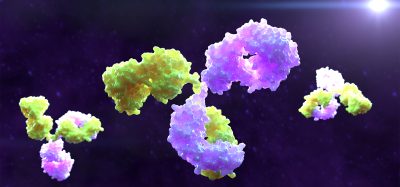VBI Vaccines announces progress from coronavirus programme
Posted: 11 April 2022 | Ria Kakkad (Drug Target Review) | No comments yet
Pre-clinical research from VBI Vaccines has demonstrated an encouraging ability to boost and broaden the immune response against the coronavirus Beta variant.


VBI Vaccines Inc. has announced updated pre-clinical and clinical data from its coronavirus programme, VBI-2900. VBI-2900 consists of three candidates derived from the company’s proprietary enveloped virus-like particle (eVLP) technology platform, including: VBI-2902: a monovalent candidate directed against the ancestral/Wuhan SARS-CoV-2 strain; VBI-2905: a monovalent candidate directed against the Beta SARS-CoV-2 variant; VBI-2901: a trivalent, pan-coronavirus candidate targeting COVID-19, SARS-CoV and MERS-CoV.
According to the company, the new pre-clinical and clinical data for all three candidates have continued to support the robust potential of the eVLP platform, with candidates that have been able to elicit broad immune responses against coronaviruses.
Against a panel of coronavirus variants in mice, reactivity was seen with VBI-2902 against all variants including the ancestral strain, Delta, Beta, Omicron, Lambda and RaTG13 (a bat coronavirus that is distant to circulating human strains). In this same panel, VBI-2901 was able to elicit an even stronger response against all variants tested – as the strains became more divergent from the ancestral strain, VBI-2901 elicited a greater difference in GMT from VBI-2902, ranging from 2.5-fold higher against the ancestral strain to nine-fold higher against the bat coronavirus. A validated pseudoparticle neutralisation assay (PNA) benchmarked against the World Health Organization (WHO) reference standard demonstrated that VBI-2902 elicited neutralising antibody responses of 176 IU50/mL in its Phase Ia study – this international standard measure would predict a greater than 90 percent efficacy, with two internationally approved vaccines estimated to have 90 percent efficacy at 83 and 140 IU50/mL (Gilbert, PB, 2021).
These new data also demonstrate that in clinical studies, VBI-2902 and VBI-2905 were well-tolerated with no safety signals observed. The researchers found that when VBI-2902 and VBI-2905 were evaluated at a low dose of 5µg and both are adjuvanted with aluminium phosphate, a well-known adjuvant with decades of safety data from multiple US Food and Drug Administration (FDA)-approved vaccines.
Furthermore, in the Phase Ib study (n=53), a single-dose booster of VBI-2905 increased the geometric mean titer (GMT) of neutralising antibodies directed against the Beta variant 3.8-fold, at day 28, in participants who had previously received two-doses of an mRNA vaccine (ancestral strain) – approximately two-fold increases were also seen at day 28 in antibody GMTs against both the ancestral and delta variant.
“These new data continue to strengthen the potential of eVLP candidates against coronaviruses. The magnitude of antibody boosting against the Beta variant in the Phase Ib study of VBI-2905 was greater than expected. After one dose, this candidate was able to broaden robust immunity to the Beta variant, in addition to the ancestral strain (against which participants were previously vaccinated), thus overcoming the potential for ‘original antigenic sin.’ Moreover, we are excited by the pre-clinical data we have continued to generate with VBI-2901. We have long believed that in order to ensure long-term protection against known and unknown coronavirus variants, we must cease chasing variants and instead develop vaccines that can provide a broader foundation of immunity,” said Jeff Baxter, President and CEO of VBI Vaccines.
The first clinical study of VBI-2901 expected to initiate summer 2022.
Related topics
Antibodies, Clinical Trials, Disease Research, Drug Development, Therapeutics, Vaccine
Related conditions
Covid-19
Related organisations
VBI Vaccines, World Health Organization (WHO)
Related people
Jeff Baxter








